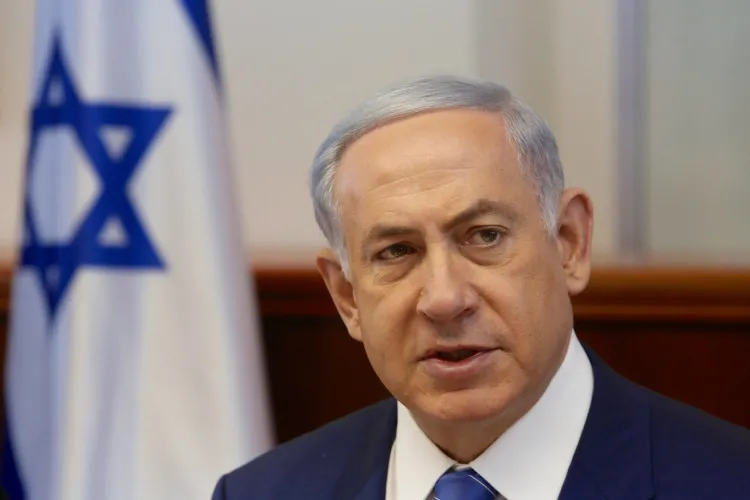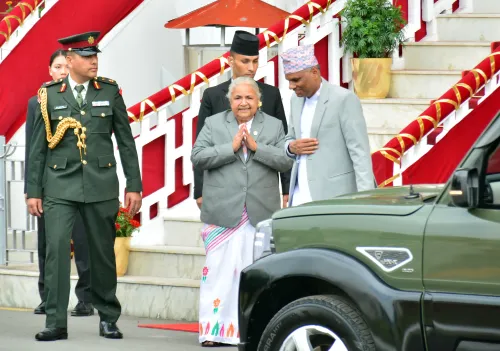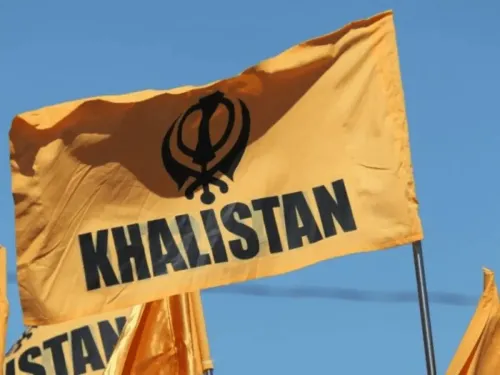Is Israel's Security Cabinet Planning to Take Over Gaza City?

Synopsis
Key Takeaways
- Israel's Security Cabinet has approved a plan to take control of Gaza City.
- The aim is to ensure national security and eliminate Hamas.
- Hamas has criticized the move as a disruption to negotiations.
- The humanitarian crisis in Gaza continues to worsen with significant casualties.
- Airdrops of aid from various countries have begun, but challenges remain.
Jerusalem, Aug 8 (NationPress) - The Security Cabinet of Israel has given the green light for a strategy to assume control over Gaza City, as indicated in a statement from Prime Minister Benjamin Netanyahu's office on Friday.
The Israeli government aims to dominate all of Gaza to "ensure our safety, eliminate Hamas, and allow the residents to live freely away from Gaza," Netanyahu stated in a Fox News interview just prior to the Cabinet meeting, as reported by Xinhua News Agency.
"Our goal is not to retain it. We seek to establish a security perimeter and transfer authority to Arab forces that can manage it effectively, ensuring safety for us and a better life for the people of Gaza," he added.
In response, Hamas issued a statement claiming Netanyahu's remarks illustrate "a significant shift in negotiation dynamics and expose the real intentions behind his exit from the concluding discussions."
According to Gaza-based health authorities, the renewed Israeli airstrikes since March 18 have led to at least 9,752 Palestinian deaths and an additional 40,004 injuries, bringing the total fatalities since October 2023 to 61,258 and injuries to 152,045.
This week, the Israeli military reported that five countries airdropped 107 humanitarian aid packages over Gaza on Wednesday.
The airdrops, which included food supplies, were carried out by the United Arab Emirates, Jordan, Germany, Belgium, and France, according to a military communiqué.
The airdrops commenced in late July after images of starving children in Gaza ignited global outrage concerning Israel's ongoing blockade.
However, officials from the United Nations and experts argue that these airdrops will have minimal effect unless Israel opens the crossings to facilitate more aid and permits medical assistance for the malnourished, especially since all hospitals in Gaza have suffered damage or destruction.
The ongoing Israeli blockade and military operations have exacerbated the hunger crisis in Gaza, almost 22 months into the conflict.
On July 27, the Israel Defence Forces (IDF) declared a "local tactical pause in military operations" in densely populated regions of the Gaza Strip, effective from 10 am to 8 pm local time.
The military stated that this "pause" will continue daily until further notice in areas where IDF troops are not actively engaging, including Deir al-Balah, al-Mawasi, and Gaza City, as reported by The Times of Israel.
The decision was made "following directives from the political echelon, as part of the IDF's ongoing initiative, led by COGAT, to expand the humanitarian aid entering the Gaza Strip."









